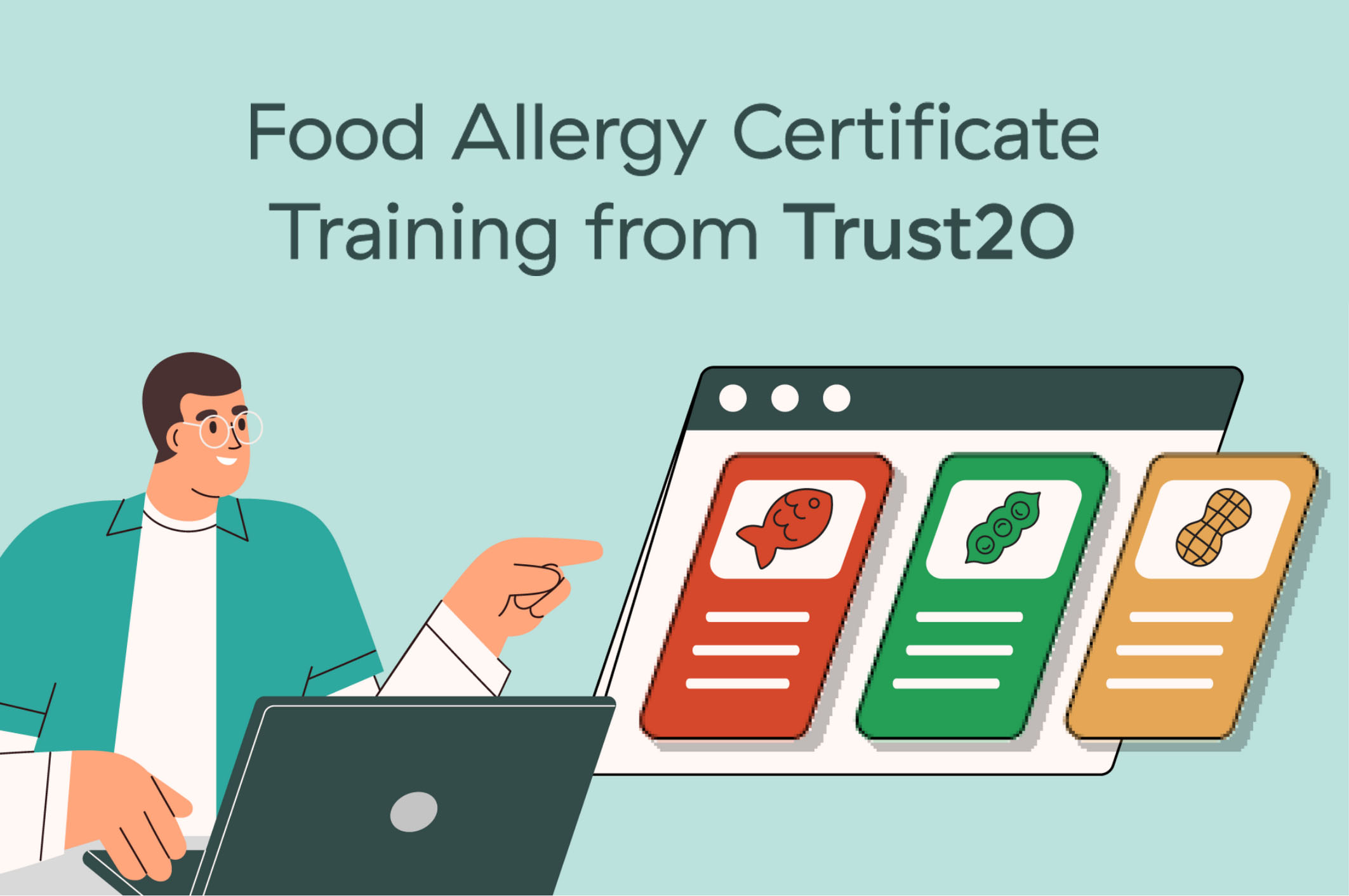As a training and development resource for the foodservice industry, Trust20 is pleased to announce the release of our ANAB-accredited Food Allergy Certificate Training.1
Trust20’s Food Allergy Certificate Training provides critical information about food allergies, intolerances, and preferences. This online training is designed to help anyone in the foodservice industry confidently serve customers impacted by a food sensitivity.
Food allergies impact nearly 32 million Americans–and that number is growing every year. The rise in food allergies makes it increasingly more likely foodservice workers will encounter customers who require modifications to their orders to prevent potentially life-threatening reactions.2
Trust20’s Food Allergy Certificate Training was created to make learning the essentials of food allergies accessible and approachable for anyone working in the industry. This training can help managers and shift leaders support their teams when interacting with customers with allergies – or serve as a way for staff to grow their knowledge and future career.
The course consists of eight modules and a final assessment, covering what food allergies actually are, why food allergy training matters, recognizing symptoms, anaphylactic shock, emergency protocol, methods of preventing reactions, communication, preparation, and service/delivery. Interactive scenarios and gamified knowledge-checks help learners relate to the information and carry it into their everyday work.
Stephanie Wethington, General Manager of Trust20, said, “Trust20 wants to see every individual in the industry thrive and reach their career goals. We started by committing to helping operators onboard and maintain exceptional staff with our Food Handler Training. Now, we are broadening our offerings to support those who dream of one day opening their own food business through continued learning. It is important to us to continue talking with people in the industry today to ensure we are speaking to their real life experiences and having a positive impact on the future of their careers.”
In addition to the Food Allergy Certificate Training, Trust20 also offers a suite of ANAB-accredited products to help foodservice workers learn the essentials of food safety. Both of these courses are available now.
Sources:
-
ANAB: ANSI Accreditation Board
-
FARE: What is a Food Allergy?





.png)

.png)
